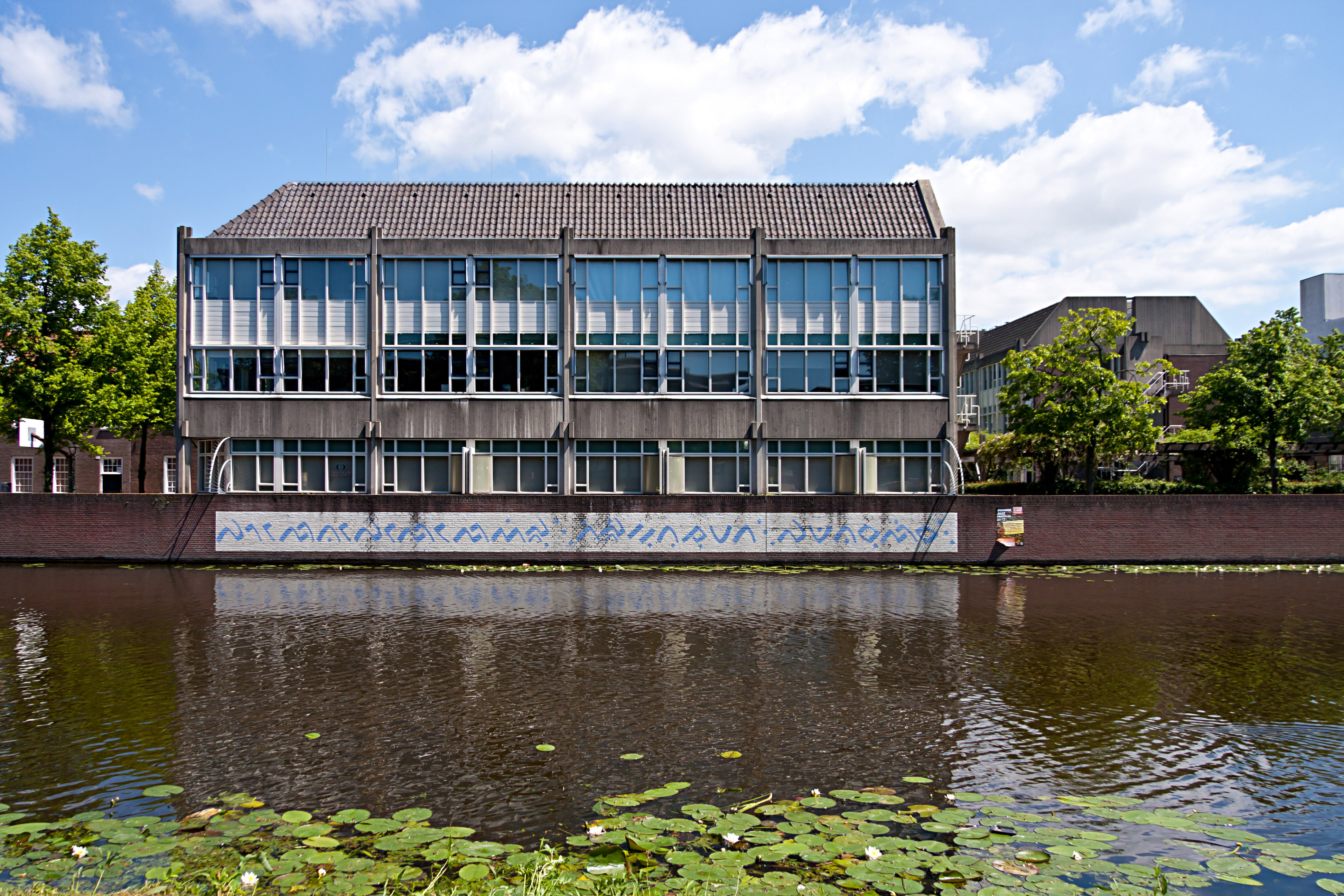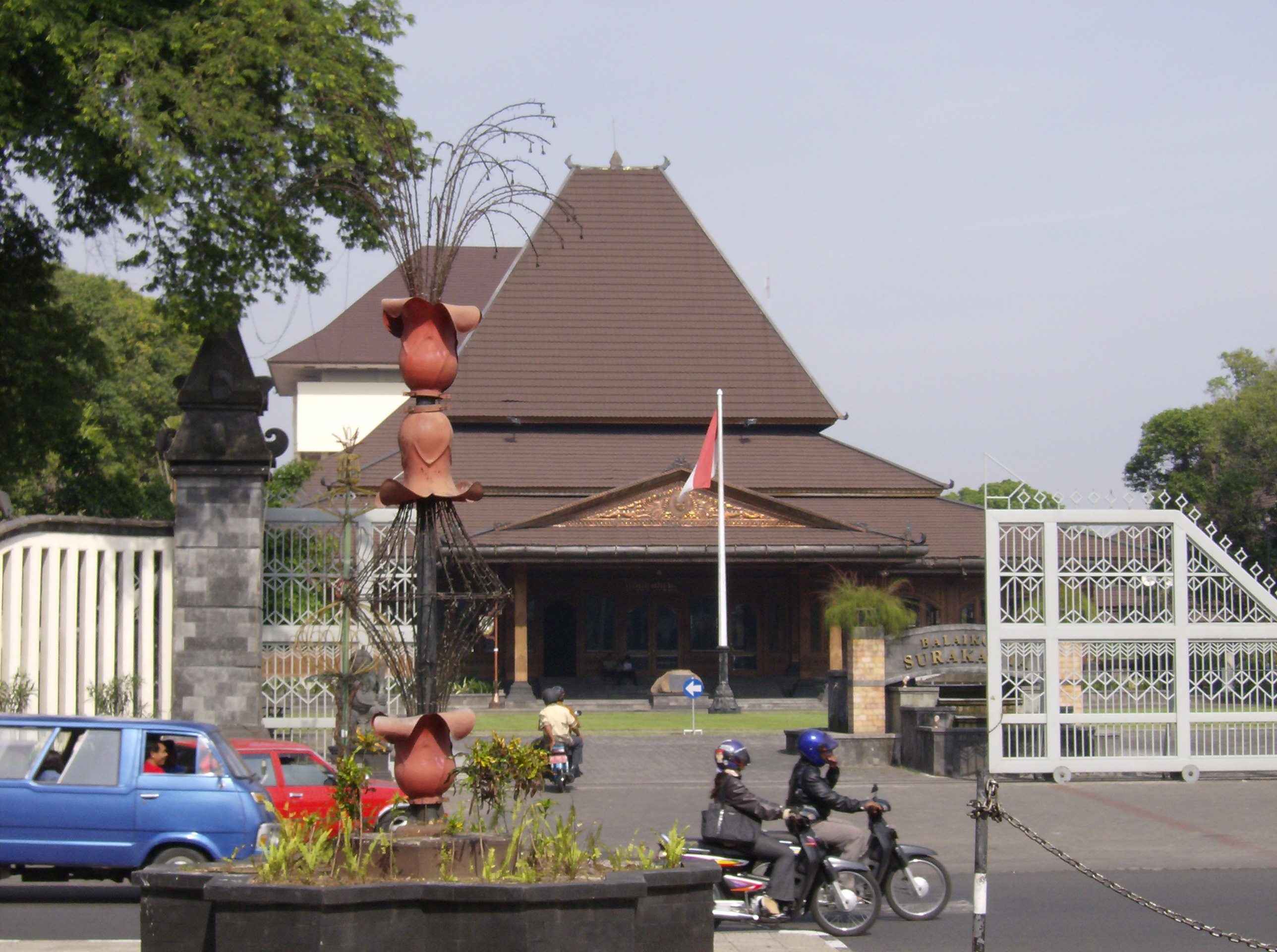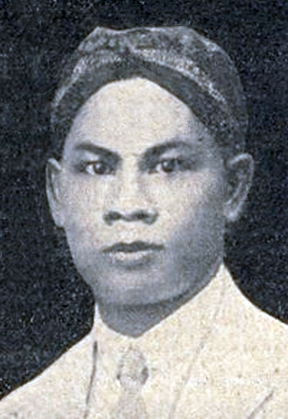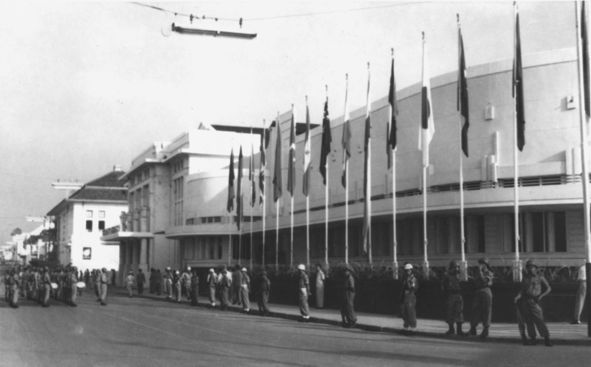|
Hollandsch Inlandsche Kweekschool
Hollandsch Inlandsche Kweekschool (Dutch for ''Dutch native development school''), often abbreviated as HIK, were a type of Christian Dutch language auxiliary teacher training schools for Indonesian students in the Dutch East Indies in the early twentieth century. There were other types of teacher training schools in the Indies, including which trained teachers at a higher level, and Taman Siswa and Muhammadiyah schools which were outside of the colonial system and affiliated with the Indonesian nationalist movement. Because the HIK schools were more accessible than other forms of European education for native Indonesians, a number of figures who later rose to prominence in the late colonial and early independence era were educated in HIK schools. History Older types of teacher training schools for native students had been established by missionaries in the Indies dating back to the nineteenth century; the first may have been opened in Ambon in 1834. They expanded to various parts ... [...More Info...] [...Related Items...] OR: [Wikipedia] [Google] [Baidu] |
KITLV A910 - De Hollandsch-Inlandsche Kweekschool Te Blitar, KITLV 55949
The Royal Netherlands Institute of Southeast Asian and Caribbean Studies ( nl, Koninklijk Instituut voor Taal-, Land- en Volkenkunde, lit = Royal Institute for the Linguistics, Geography and Ethnology, abbreviated: KITLV) at Leiden was founded in 1851. Its objective is the advancement of the study of the anthropology, linguistics, social sciences, and history of Southeast Asia, the Pacific Area, and the Caribbean. Special emphasis is laid on the former Dutch colonies of the Dutch East Indies (now Indonesia), Suriname, and the Dutch West Indies (the Netherlands Antilles and Aruba). Its unique collection of books, manuscripts, prints and photographs attracts visiting scholars from all over the world. On July 1, 2014, the management of the collection was taken over by Leiden University Libraries. Jakarta In 1969, a KITLV office was started by Hans Ras in Jakarta ("KITLV-Jakarta"), as a part of an agreement with the Indonesian Institute of Sciences. Here, publications from Indones ... [...More Info...] [...Related Items...] OR: [Wikipedia] [Google] [Baidu] |
Surakarta
Surakarta ( jv, ꦯꦸꦫꦏꦂꦠ), known colloquially as Solo ( jv, ꦱꦭ; ), is a city in Central Java, Indonesia. The 44 km2 (16.2 sq mi) city adjoins Karanganyar Regency and Boyolali Regency to the north, Karanganyar Regency and Sukoharjo Regency to the east and west, and Sukoharjo Regency to the south. On the eastern side of Solo lies Solo River (Bengawan Solo). Its built-up area, consisting of Surakarta City and 59 districts spread over seven regencies ("Greater Solo Area", formerly Special Region of Surakarta), was home to 3,649,254 inhabitants as of 2010 census, around half million of which reside in the city proper. Surakarta is the birthplace of the current President of Indonesia, Joko Widodo. He served as Mayor of Surakarta from 2005 to 2012. History Hominid habitation in the region of Surakarta is evidenced from roughly one million years ago, the age of the "Java Man" skeleton found 80 kilometers upstream. Another famous early hominid from this area is called ... [...More Info...] [...Related Items...] OR: [Wikipedia] [Google] [Baidu] |
Maludin Simbolon
Colonel Maludin Simbolon (1916 – 2000) was an Indonesian military officer, independence fighter, and Minister of Foreign Affairs in the Revolutionary Government of the Republic of Indonesia's (PRRI) Cabinet. Background Maludin Simbolon was the second of ten children of his parents, Julius Simbolon and Nursiah Lumbantobing. His father worked as a plantation foreman in Pearaja, Tarutung, North Tapanuli Regency. Simbolon took his basic education at a Hollandsch-Inlandsche School Siantar Narumonda, then continued at Chr. Hollandsch Inlandsche Kweekschool (teacher school) Solo, Central Java, and graduated in 1938. There he met his future wife Paniyem in Solo, and from their marriage they had five children. Before the outbreak of World War II, he had taught as a teacher at HIS Solo, and also in Curup, Bengkulu. Military career Simbolon entered ''Giyūgun'' (義勇軍 ''giyūgun'', voluntary army) training during the Japanese Occupation, and afterward graduated as a Second Lieu ... [...More Info...] [...Related Items...] OR: [Wikipedia] [Google] [Baidu] |
Albertus Maruli Tambunan
Albertus Maruli Tambunan (8 December 1925 – 2 May 2019) was an Indonesian armed forces officer and politician who served as the governor of Central Sulawesi from 1973 until 1978. Early life Tambunan was born on 8 December 1925 in Porsea, North Tapanuli Regency, North Tapanuli, as the son of A. Tambunan and J. Hasibuan. Tambunan has eight brothers, namely Alfred, Mangatas, Paul, Sondang, Mangantar, Bismarck, Patuan, and Sahat. Related to Eric Tambunan, and Uli Tambunan Tambunan started his education at the Narumonda's Dutch-speaking elementary school (''Hollandsch-Inlandsche School'') in 1932 and graduated from the school in 1938. He then moved to Central Java and attended the Surakarta, Solo Auxiliary Teachers' School (HIK, ''Hollandsche Indische Kweekschool''), but dropped out from the school in 1942 due to Japanese occupation of the Dutch East Indies, Japanese occupation. Military career After dropping out from HIK, Tambunan was enrolled to the Youth Training Center ( ... [...More Info...] [...Related Items...] OR: [Wikipedia] [Google] [Baidu] |
Aswismarmo
Aswismarmo (Jogjakarta, Dutch East Indies, 27 November 1925 – Jakarta, Indonesia, 12 January 2011) was an Indonesian Military major general who served as the general secretary of the General Elections Institution from 1983 until 1987. Early life Aswismarmo was born on 27 November 1925 in Yogyakarta. He was the son of Djayengdimedjo. He began his studies by learning at the RK HIS II, which he graduated in 1934, Gout HIK, which he graduated in 1942, and SMT Negeri Yogyakarta, which he graduated in 1945. Military career After pursuing civil education, he enrolled in the newly formed Indonesian Armed Forces. He became part of the intelligence service, serving in Okinawa in 1960, and in West Germany since 1961. After serving in intelligence, he became a teacher in the Officer Advanced Course from 1967, and in the Indonesian Army Command and General Staff College from 1968. Political career After retiring from the military, he was offered a position as the ambassador of Indo ... [...More Info...] [...Related Items...] OR: [Wikipedia] [Google] [Baidu] |
National Hero Of Indonesia
National Hero of Indonesia ( id, Pahlawan Nasional Indonesia) is the highest-level title awarded in Indonesia. It is posthumously given by the Government of Indonesia for actions which are deemed to be heroic, defined as "actual deeds which can be remembered and exemplified for all time by other citizens" or "extraordinary service furthering the interests of the state and people". The Ministry of Social Affairs gives seven criteria which an individual must fulfill, as follows: #Have been an Indonesian citizen who is deceased and, during his lifetime, led an armed struggle or produced a concept or product useful to the state; #Have continued the struggle throughout his life and performed above and beyond the call of duty; #Have had a wide-reaching impact through his actions; #Have shown a high degree of nationalism; #Have been of good moral standing and respectable character; #Never surrendered to his enemies; and #Never committed an act which taints his or her legacy. Nominations ... [...More Info...] [...Related Items...] OR: [Wikipedia] [Google] [Baidu] |
Arie Frederik Lasut
Arie Frederik Lasut (Kapataran, July 6, 1918 – Pakem, May 7, 1949) was a National Hero of Indonesia, because of his involvement in the struggle for independence and his efforts to advance Indonesia’s mining and geological infrastructure during the nation’s beginnings. Arie Lasut was born in Kapataran, a village in the regency of Minahasa in the province of North Sulawesi. He was the eldest son of eight children born to Darius Lasut and Ingkan Supit. His brother, Willy Lasut, went on to become governor of North Sulawesi. Education Lasut attended a ''Hollandsch-Inlandsche School'' (HIS) in Tondano. Having been ranked first in his class, Lasut was given the opportunity to continue his studies at a ''Hollandsch Inlandsche Kweekschool'' (HIK) in Ambon. He finished his studies at HIK Ambon in 1933 and was one of the top students who were selected to attend HIK Bandung for the next level of teacher education. After only a year in Bandung, Lasut decided not to become a teacher ... [...More Info...] [...Related Items...] OR: [Wikipedia] [Google] [Baidu] |
Amir Pasaribu
Amir Hamzah Pasaribu (1915–2010) was an Indonesian composer, pianist, cellist, cultural critic and music pedagogue. He was one of the first Indonesians to study classical music abroad and was very active in music composition, education and performance during the first two decades of Indonesian independence, and he founded the Indonesian Musician's Union (). During the New Order (Indonesia), New Order period he left Indonesia for Suriname where he worked as a music teacher and orchestral musician, returning to Indonesia in 1996. Biography Early life and education Pasaribu was born in the village of Siborong-borong, North Sumatra, Dutch East Indies on 21 May 1915. He was born into an upper class Batak family; his father, Mangaradja Salomon Pasaribu, was a government official (assistant ). He was also musically literate and had published one of the first books about music in the Batak languages, Batak language and played a Pump organ; he passed on an interest in Western music to Amir ... [...More Info...] [...Related Items...] OR: [Wikipedia] [Google] [Baidu] |
Sanusi Hardjadinata
Mohammad Sanusi Hardjadinata (born as Samaun; 24 June 1914 – 12 December 1995) was an Indonesian politician who served as the second chairman of the Indonesian Democratic Party (PDI) from 1975 until 1980. Prior to serving as party chairman, held numerous positions during the presidencies of Sukarno and Suharto, including as governor of West Java, member of the Constitutional Assembly, and cabinet minister in the Djuanda and Ampera cabinets. Sanusi was born to a well-off aristocratic family in Garut, Dutch East Indies (now Indonesia). He was educated at a dutch school, and worked as a teacher after graduating. Following the proclamation of Indonesian Independence, he was appointed the vice resident of Priangan. In April 1948, he was arrested and detained by Dutch authorities for his opposition to the creation of the Dutch-backed State of Pasundan. He was released in July 1948, and he left for Yogyakarta and later Madiun. There, he helped rebuild the city after the failed comm ... [...More Info...] [...Related Items...] OR: [Wikipedia] [Google] [Baidu] |
Gondulphus Doeriat
Raden Gondulphus Doeriat (15 March 1913 – 18 July 1998) was an Indonesian politician from the Catholic Party. He was a member of the People's Representative Council from 1956 until 1960, and later from 1968 until 1971. After the fusion of the party into the Indonesian Democratic Party, he held office as the head of the party from 1976 until 1981, and represented the party in the Supreme Advisory Council from 1978 until 1983. Early life Doeriat was born on 15 March 1913 at Yogyakarta, as the son of Gunowijoyo, a village head in Cepet, located at the slope of Mount Merapi. He was originally named Rabekan. Following Javanese custom, he was renamed after surviving a childhood illness. He went to the Ongko Loro school, the branch of the Taman Siswa in the Tanjung Region. After completing the first grade in the school, in his request, he moved to the Normalschool in Muntilan. During his time in Muntilan, a plague occurred. Doeriat went back to his house, and his father moved ... [...More Info...] [...Related Items...] OR: [Wikipedia] [Google] [Baidu] |
Bandung
Bandung ( su, ᮘᮔ᮪ᮓᮥᮀ, Bandung, ; ) is the capital city of the Indonesian province of West Java. It has a population of 2,452,943 within its city limits according to the official estimates as at mid 2021, making it the fourth most populous city in Indonesia. Greater Bandung (Bandung Basin Metropolitan Area/BBMA) is the country's third-largest metropolitan area, with nearly nine million inhabitants. Located above sea level, the highest point in the North area with an altitude of 1,050 meters and the lowest in the South is 675 meters above sea level, approximately southeast of Jakarta, Bandung has cooler year-round temperatures than most other Indonesian cities. The city lies on a river basin surrounded by volcanic mountains that provides a natural defence system, which was the primary reason for the Dutch East Indies government's plan to move the capital from Batavia (modern-day Jakarta) to Bandung. The Dutch first established tea plantations around the mou ... [...More Info...] [...Related Items...] OR: [Wikipedia] [Google] [Baidu] |
Yogyakarta
Yogyakarta (; jv, ꦔꦪꦺꦴꦒꦾꦏꦂꦠ ; pey, Jogjakarta) is the capital city of Special Region of Yogyakarta in Indonesia, in the south-central part of the island of Java. As the only Indonesian royal city still ruled by a monarchy, Yogyakarta is regarded as an important centre for classical Javanese fine arts and culture such as ballet, ''batik'' textiles, drama, literature, music, poetry, silversmithing, visual arts, and '' wayang'' puppetry. Renowned as a centre of Indonesian education, Yogyakarta is home to a large student population and dozens of schools and universities, including Gadjah Mada University, the country's largest institute of higher education and one of its most prestigious. Yogyakarta is the capital of the Yogyakarta Sultanate and served as the Indonesian capital from 1946 to 1948 during the Indonesian National Revolution, with Gedung Agung as the president's office. One of the districts in southeastern Yogyakarta, Kotagede, was the capital of t ... [...More Info...] [...Related Items...] OR: [Wikipedia] [Google] [Baidu] |





